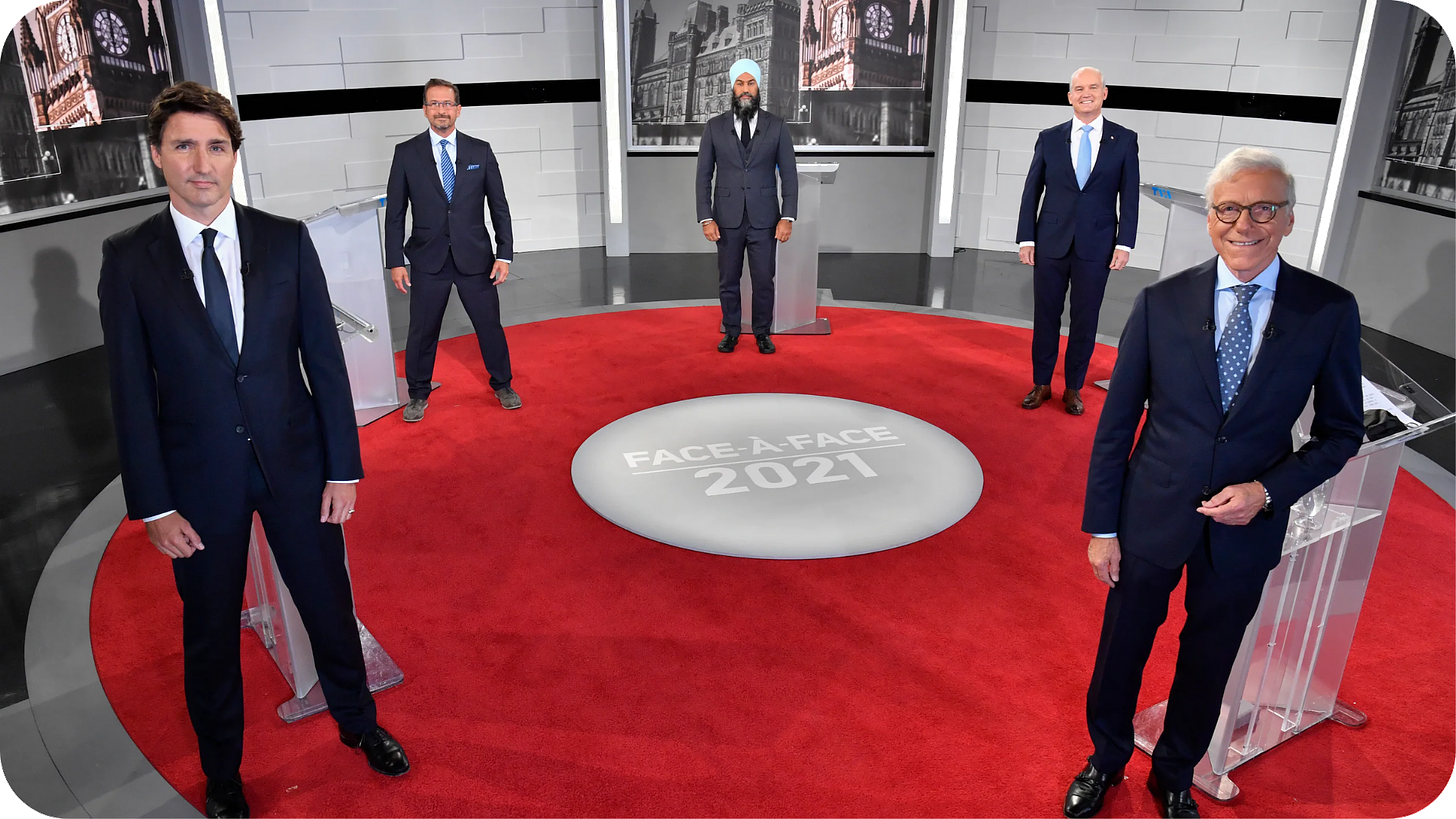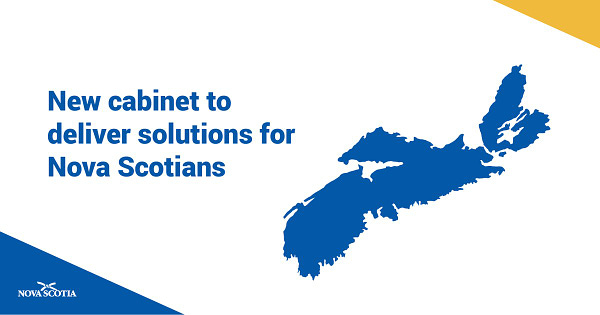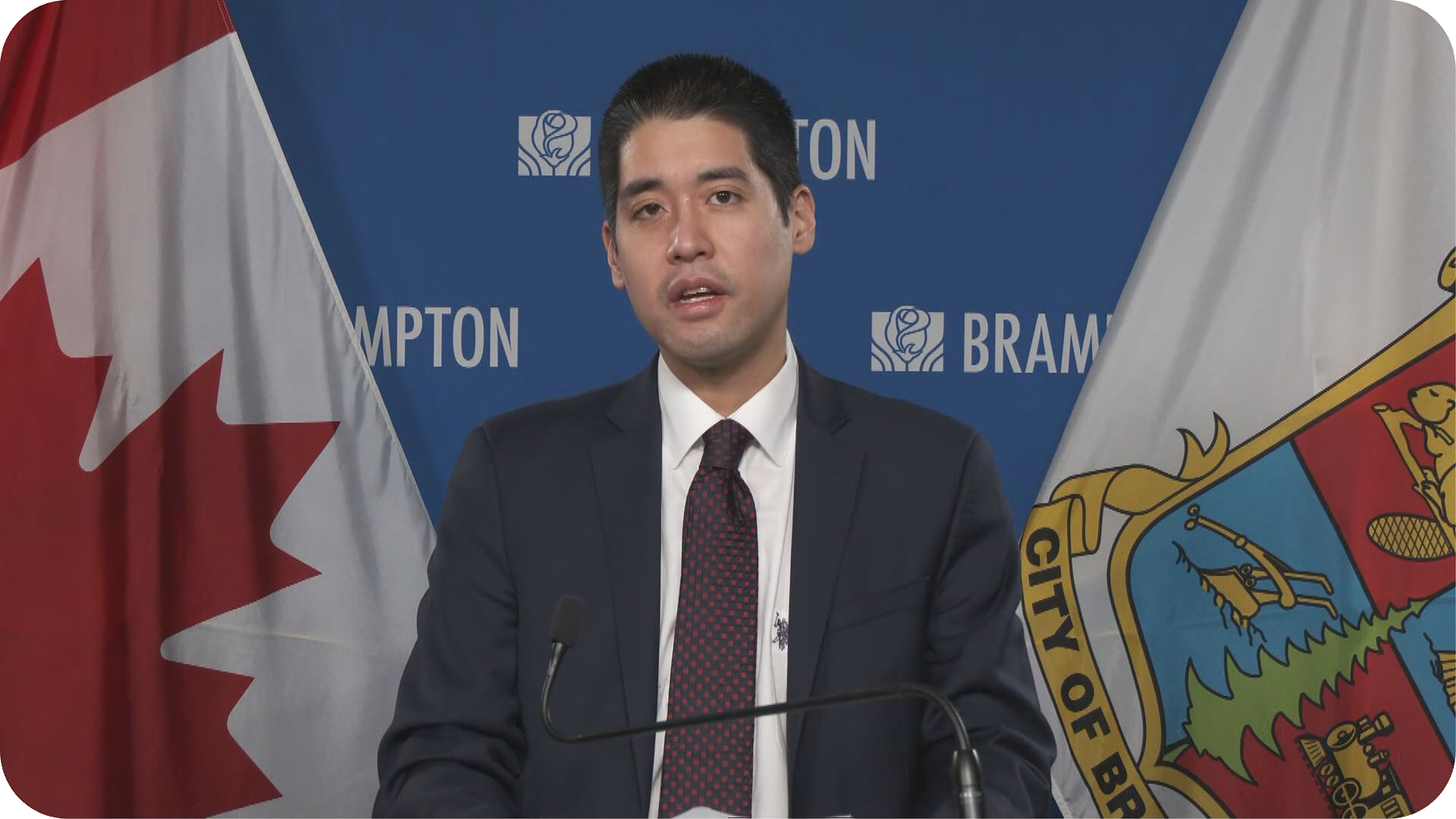Peel's top doctor speaks on vaccine certificates
In this edition: Ontario's vax pass unveiled, a look at the nomination numbers, new fourth wave projections
Happy Labour Day. Welcome to POLICORNER — your insider guide to Canadian politics, policy, and power. This is our third edition (time flies) — how can we improve, what are you liking? Send us an email, or reply to this message.
In this 9 minute read, Dr. Lawrence Loh speaks to newsBeyond on vaccine certificates and the fourth wave, Ontario unveils a vaccine passport system and a new government in Nova Scotia. Plus, our weekly look at how the party leaders spent the week on the campaign trail.
THE LEDE
Speaking to the media days before a province-wide COVID-19 vaccine certificate system was unveiled, Peel Region’s Medical Officer of Health, Dr. Lawrence Loh said that he was “actively exploring” options for a regional vaccine certificate program if the province refused to act.
newsBeyond sat down with Peel’s top doctor on Friday to discuss the province’s new vaccination certificate, the fourth wave of COVID-19, and more. Here are the highlights of our conversation:
What is your reaction to the vaccine certificate system unveiled by the government earlier this week?
“We're really grateful that Premier Ford, Dr. Kieran Moore, and our Ministry partners were able to bring out a vaccine certification program. I think it’s going to help address the increasing rates of transmission that we are seeing in the fourth wave. Ultimately, it's going to keep those individuals who are unvaccinated in our communities safe, either by encouraging them to access protection or by protecting them in certain settings where they may be at an increased risk.”
Can we expect Peel Public Health to add to the list of settings that would require proof of vaccination for access?
“We’re continuing to study the program put forward by the provincial government. I know that in speaking with Dr. Kieran Moore, he explained that the settings that were chosen were settings where transmission is currently being observed. He did not rule out adding additional settings in the event that they are starting to see activity. To the extent that this is an evolving situation, Peel Public Health will continue to monitor and work with our provincial partners. Where necessary, we will take local action, but certainly recognize that there is value in trying to ensure that the program is also applied consistently across the province.”
In terms of vaccination rates, what threshold would we be looking at to decide when to lift this certificate program?
“Well, it really comes down to a point where there will be no more waves. In the midst of this fourth wave, we are still seeing a lot of unvaccinated people making up the majority of the cases being reported in Ontario every day. At some point, you will get to a threshold where there are enough people that have been exposed to this virus, either by vaccination or by infection. And at that point, the virus would be considered largely endemic. So the risk of severe outcomes as a whole is somewhat diminished. At that point, I think, is really when we would start to revisit not just the vaccine passport, but all of the various measures just to see if they are necessary at that point.”
Has Peel Public Health given any advice to businesses on what to do before September 22 when the official vaccine certificate is implemented?
“We're not planning to issue any additional instructions ahead of the start of the province-wide program. We recognize that businesses need time to prepare themselves for the rollout, train their staff, and obtain the necessary resources to maintain compliance with the program. We also know that people need a grace period now that the announcement has been made to try to access vaccination. So, I don't think at this point, we have any plans to preempt that.”
Following the announcement of the vaccine certificate system, Health Minister Christine Elliot said that the number of bookings had more than doubled. Has this trend been seen in Peel?
“We basically filled out our capacity. So now, we've essentially doubled our appointment offerings and are sitting at 75% of the doubled appointment offerings at this point in all our fixed clinics. We are also expanding our mobile program, and we are looking at adding additional mobile clinics throughout the return to school period targeting youth aged 12 to 17 for first and second doses. So there has definitely been an increase in demand.”
New modelling by the COVID-19 Science Table shows that under a worst-case scenario, Ontario could see 9,000 cases per day by October. Are we headed to another lockdown?
“What we have right now is a significant proportion of individuals in our community who are vaccinated and are at a decreased risk of severe outcomes, including death and hospitalization. Those are really the main reasons why in the first, second, and third waves, we really needed to close. At that point, the population was largely susceptible. The risk to life, as well as to our hospital health care system was quite significant. Now, because we have this significant coverage of vaccination, there is an opportunity for more targeted measures, perhaps in higher-risk settings or for high-risk populations. But, I think broad community measures, unless it was a severe situation that we were seeing in our hospitals, are likely out of the realm of possibility.”
If we do have a rise in cases, will we see settings like schools close?
“In respect of schools, they are almost always the last setting to close. When we ordered school closures in April, we had already seen many other parts of the communities close before we got to a point where the school system was starting to be operationally difficult with the measures in place to keep that setting safe. But, I think it is really vital to highlight that schools are safe, we have measures in place that are now augmented by high vaccination rates. And, the best way to keep schools safe is to ensure that our community transmission is under control.”
Do you foresee a difficulty in contact tracing with higher transmission in a fourth wave?
“Well, I think the reality with contact tracing is that it's a good tool at a certain level of interactions and a certain level of infection. What we have right now is a very open society where you are having certain exposures occur where hundreds of people are gathered. And as you can imagine, in order to reach out to those individuals in a timely manner, calling each person would take a significant burden of time. At this point in time, it really is about trying to encourage people to stick to the precautions as much as possible. We will use our resources in the most effective way that we know how.”
The interview has been edited for length and clarity.
Ontario unveils a COVID-19 vaccine certificate system
Ontario has unveiled a COVID-19 vaccine certificate system, joining several provinces in implementing a province-wide proof of vaccination program.
Speaking to reporters on Wednesday, Premier Doug Ford introduced the “enhanced COVID-19 vaccine certificate” system, which would require full vaccination for access to high-risk indoor public settings as of September 22. Ontarians will need to provide their PDF vaccination receipt along with photo ID to access settings and events where the risk of transmission is high. Beginning October 12, the province will transition to a QR code-based application that will confirm an individual’s vaccination status and identity.
SETTINGS REQUIRING PROOF OF VACCINATION: The province released a list of settings and events requiring full vaccination for access, including: restaurants and bars, nightclubs, meeting and event spaces, facilities used for sports and fitness activities and personal fitness training, sporting events, casinos, gaming establishments, concerts, music festivals, theatres, cinemas, strip clubs, racing venues.
THE REACTION: Liberal leader Steven Del Duca said that while he is “encouraged to see this long-overdue action,” he is “deeply concerned” about how long it will take to roll out the program. NDP leader Andrea Horwath said the certificates are not coming “soon enough” and are “leaving far too many businesses on their own to make tough decisions.” Ryan Mallough and Julie Kwiecinski of the Canadian Federation of Independent Business said that while the announcement “provides some clarity,” it leaves man “unanswered questions for small business owners.” “We call on the Ontario government to provide additional financial support to aid businesses in their new role as vaccination screeners,” they added.
ELECTION ZONE
We are officially in the second half of the campaign— Canadians will head to the polls 2 weeks from today. Here is what you need to know about the past week:
JUSTIN TRUDEAU:
Liberal Party leader Justin Trudeau was in Toronto, where he released his party’s fully-costed election platform this week in Toronto. The 53-page platform proposes $78 billion in new spending, promising to tighten gun control in Canada, introduce 10 days of paid sick leave for federally regulated workers and reduce the price of mortgage insurance by 25%. Trudeau later became the first leader to visit Iqaluit during the campaign, where he participated in a rally with Liberal candidate Pat Angnakak. Finishing off the week, Trudeau visited Davenport — a battleground riding which the Liberals hope to maintain on September 20.
ERIN O’TOOLE:
Conservative Party leader Erin O’Toole’s second week of campaigning started in King City, where he promised to ban puppy mills, prohibit cosmetic testing on animals, and stop imports of animals bred inhumanely. He went back to the party's HQ in Ottawa, where he participated in a virtual town hall for Nova Scotia. He then headed to Montreal to participate in the French-language debate, where he pledged to maintain the current ban on assault weapons.
JAGMEET SINGH:
NDP leader Jagmeet Singh started week three of the campaign in Ottawa, where he highlighted a proposed wealth tax — one percent on wealth over $10 million. Singh then went to Coquitlam, British Columbia for the second time during the campaign — where he spoke on housing. Off to battleground Quebec where Singh handed out his famous Punjabi Poutine to the supporters, before attending the TVA debate. Following the debate, Singh unveiled his Quebec platform, pledging to recognize the province’s “distinct identity.” The NDP leader finished off the week by penning a letter to the leaders of the main political parties calling on them to “put partisanship aside” and record a video message ahead of the French-language debate on Wednesday urging Canadians to get vaccinated. Trudeau, O’Toole, Blanchet, and Paul all said yes.
Where the parties stand in the polls
Here’s a look at the polls with 14 days left before Canadians vote, according to CBC’s Poll Tracker.
CONSERVATIVE: 34.0% (+0.6)
LIBERAL: 31.1% (-0.4)
NDP: 20.0% (+0.2)
BLOC QUÉBÉCOIS: 5.9% (-0.1)
PEOPLE’S PARTY: 4.7%
GREEN PARTY: 3.5% (-0.6)
The change since POLICORNER’s previous edition is represented in the bracket.
Find the ads!
In an effort to get their messages out on this Labour Day weekend, the major political parties released new advertisments.
The Conservatives released a number of ads in the past week —Negative Justin, What Do You Think?, Justin Says, Agir pour la langue française, Ça s’fera pas tout seul, The Liberals Always Come After Your Money and Un monde sain, en français, en sécurité, en santé.
The Liberals released four new advertisments (three in English, one in French) — The Record, In His Own Words, Take Canada Back and Tissé serré.
The NDP released short 30 second ads in French — Here’s one, another, a third.
Did you spot an ad? Let us know — shoot us an email.
The debates, les débats
TVA hosted the first of two French-language debates on Thursday, featuring Liberal leader Justin Trudeau, Conservative leader Erin O’Toole, NDP leader Jagmeet Singh, and Bloc Québécois leader Yves-François Blanchet.
Green leader Annamie Paul and People’s Party leader Maxime Bernier were not invited to participate in the debate.
DEBATE TOPICS: The debate covered three main topics: the COVID-19 pandemic, social issues, and “the Canada of tomorrow.“ The leaders went head to head on issues including mandatory vaccination, Trudeau’s decision to call a federal election, health care funding, and gun control. Here’s a thread from CBC News’ Raffy Boudjikanian.
The second French-language debate, organized by the Leaders’ Debates Commission is scheduled to take place on Wednesday at 8 PM ET, moderated by Radio-Canada’s Patrice Roy. The debate will cover climate, cost of living, indigenous peoples and cultural identity, justice, foreign policy, the pandemic, and healthcare.
The English-language debate will happen on Thursday at 9 PM ET, moderated by Angus Reid’s Shachi Kurl with participation from CBC News’ Rosemary Barton, CTV News’ Evan Solomon, Global News’ Mercedes Stephenson, and APTN News’ Melissa Ridgen. The debate will cover affordability, climate, COVID-19 recovery, leadership, and reconciliation.

Nomination calculation
The deadline for candidates to submit their nomination papers has passed. The final tally is here, and only one party has a full slate of candidates.
NDP: 338 candidates (—)
LIBERAL: 337 candidates (-1)
CONSERVATIVE: 337 candidates (-1)
PEOPLE’S PARTY: 312 candidates (-26)
GREEN PARTY: 252 candidates (-86)
BLOC QUÉBÉCOIS: 78 candidates (only in Québec)
NEWS WATCH
The Ontario government has prorogued the Legislature amid an ongoing federal election. In a statement, Government House Leader Paul Calandra said the decision was made to prorogue the Legislature until “we have more certainty and can finalize our fall legislation accordingly.” MPPs will return to Queen’s Park on October 4. Reaction from the NDP, Liberals, and Greens.
Tim Houston was sworn in as Premier of Nova Scotia on Tuesday, in a ceremony presided by Lieutenant Governor Arthur J. LeBlanc at Halifax’s Convention Centre. Houston, the province’s first Progressive Conservative premier since 2009 named 18 cabinet ministers.


Unvaccinated teachers in Ontario will be required to provide verification of negative COVID-19 test results “at least two times per week,” according to a memo from the Ministry of Education to school boards on Friday. Deputy Minister Nancy Naylor said that “rapid antigen screening kits are being deployed” to school boards “with a target of having supplies” delivered by September 20. Until then, the government has authorized pharmacies to provide publicly funded testing services as of September 7.
Liberal candidate Raj Saini is no longer seeking re-election in Kitchener Centre amid allegations of sexual misconduct. Saini, who was first elected in 2015, said in a statement on Saturday that he plans to challenge the “false accusations” and is in the process of consulting legal counsel. The Liberal Party says “a review process was initiated after new information was directly provided” to the party.
Liberal MPP John Fraser is calling on Health Minister Christine Elliot to “immediately veto the appointment” of Dr. Matt Strauss, an assistant professor at Queen’s University who has voiced his opposition to COVID-19 lockdowns as Haldimand-Norfolk’s acting Medical Officer of Health. Alexandra Hilkene, spokesperson for the Minister of Health said that “the Minister is responsible for approving the appointment of full-time medical officers of health, not acting medical officers of health.” “Under no circumstances would we ever approve the appointment of a local medical officer of health who does not support the public health measures that have saved countless lives throughout the pandemic,” Hilkene added.
New federal and provincial fourth wave projections were released. Ontario’s COVID-19 Science Table modelling shows that the province will see “a substantial 4th wave” that will “affect all age groups with the potential to exceed ICU capacity.” Meanwhile, national COVID-19 modelling shows Canada could see up to 15,000 cases per day by the end of the month if the rate of vaccination does not accelerate.
WHAT WE’RE READING
GLOBAL NEWS: “Voters getting split between Liberals and NDP, creating path for Tories: election poll” by Sean Boynton
“NDP Leader Jagmeet Singh’s ‘optimistic’ hope for Quebec caucus swell” by Abigail Bimman
CBC NEWS: “Annamie Paul is leading the Green Party's national campaign — but hasn't left Toronto once” by David Thurton
“In Quebec, no party has an easy path to victory” by Chris Hall
CTV NEWS: “Everything you need to know about the new travel rules coming into effect Sept. 7” by Christy Somos
POLITICO: “Britain’s plan for when Queen Elizabeth II dies” by Alex Wickham
TRIVIA CORNER
Last week, we asked how many seats did the Conservatives have at dissolution — 119 seats was the correct answer.
ANSWER THIS: What was the date of the 2019 federal election? Email newsbeyondca@gmail.com with the answer.
Thank you for reading today’s POLICORNER. Send us your news tips and trivia suggestions to newsbeyondca@gmail.com. Share the newsletter on Twitter and invite your friends to sign up today.




